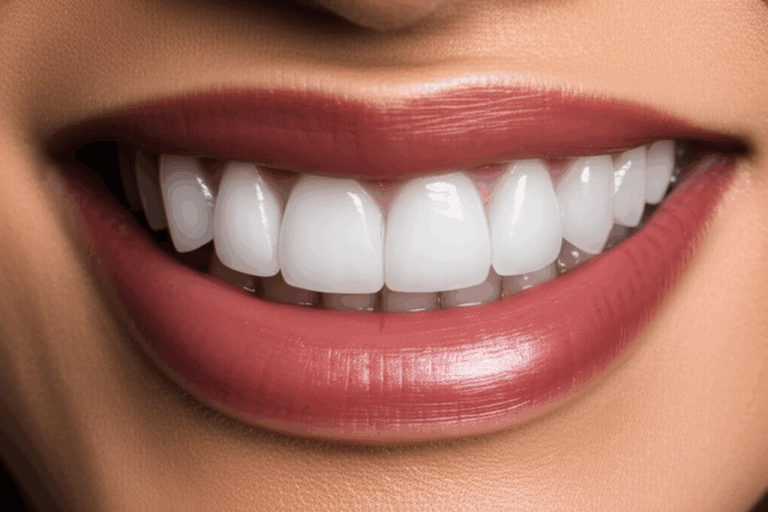
How to See a Dentist in the UK: Your Essential Guide to NHS & Private Dental Care
That awful feeling when your tooth hurts or you realise you haven’t been to the dentist in ages—lots of people know what that’s like. If you’ve just moved to the UK, are having trouble finding an NHS dentist, or just feel stressed out by the whole dental process, you’re not the only one. Figuring out dental care in Britain can feel tricky, especially if your mouth hurts or you’re worried about the price. Let’s make things simple. By the end of this guide, you’ll know what to do and who to get help from—whether you need a normal check-up, urgent care, or something special.
In This Article
- Understanding NHS vs. Private Dentistry in the UK
- How to Find and Register with a Dentist (NHS or Private)
- What to Do in a Dental Emergency
- Dental Costs in the UK—And Help If You’re Struggling
- Special Cases: Children, Anxious Patients, Changing Dentist & More
- Key Takeaways for Your Dental Health
Understanding the Dental Dilemma: Why Seeing a Dentist in the UK Can Be Tricky
If you’ve tried to get an NHS dentist appointment recently, you’ve probably found long waiting lists, being turned down, or just no results on your web searches for “NHS dentist near me.” Right now, the UK is dealing with what’s called a “dental desert.” The British Dental Association (BDA) says 90% of NHS dental practices aren’t letting new adult patients sign up. Even for kids, 80% of places won’t take someone new. Sometimes, the wait can be more than a year.
Why is it so hard? Fewer dentists offer NHS care these days (2,500 fewer NHS dentists than in 2019) and the whole system is crowded. Because of this, lots of people are turning to private dentists or even trying to fix their teeth on their own. If your tooth hurts, if you’re scared about going, or you just want to get on the waiting list, it makes sense to feel a bit lost. But don’t worry: you still have some ways to get help. Let’s look at your choices and see what might be best for your budget and your teeth.
NHS Dentistry vs. Private Dentistry: Which One Is Right for You?
Here comes the big question: “Should I try for an NHS dentist or just pay for private?” Both options have good sides and bad sides, depending on what you need.
A. NHS Dentistry
1. What Does the NHS Cover?
The NHS (National Health Service) gives you needed dental care aimed at keeping your teeth and gums healthy. This means check-ups, fillings, pulling teeth, root canals, and dentures. Fancy treatments like teeth whitening or veneers are not usually on the NHS.
2. Pros & Cons
Pros:
- Cheaper and fixed prices (the prices are set every year).
- Free treatment for some people, including kids under 18, pregnant women, and people getting some benefits.
Cons:
- It’s really busy; long waits, especially for adults.
- Not many different treatments (mostly basic stuff).
- Fewer options for booking times.
3. NHS Dental Charges Explained (2024)
England, Wales, Scotland, and Northern Ireland all set prices a bit differently, but here’s a quick look for England (June 2024):
- Band 1 (£26.80): Check-up, diagnosis, x-rays, basic clean.
- Band 2 (£73.50): Everything in Band 1 plus fillings, root canal, tooth pulled.
- Band 3 (£319.10): Bands 1 & 2 plus crowns, dentures, bridges.
You pay just once per course of treatment, no matter how many visits. NHS prices go up sometimes.
4. Who Gets Free NHS Dental Care?
You don’t pay if:
- You’re under 18 (or under 19 and still in full-time school)
- Pregnant or had a baby in the last 12 months
- On certain benefits (like Universal Credit)
- On low income and qualify for the NHS Low Income Scheme (LIS)
Check the full list on the NHS website.
B. Private Dentistry
1. What Does Private Dentistry Offer?
Private dentists give you more choice and more types of treatments—including fancy and new stuff that the NHS doesn’t, like teeth whitening, dental implants, or ceramic veneers.
2. Pros & Cons
Pros:
- Easier to find an appointment—often in days or weeks.
- Shorter waits, more choices for materials and how they treat you (like white fillings or top cleaning).
- More types of treatments.
- Some places are open evenings and weekends.
Cons:
- Costs are higher and different everywhere.
- You pay for everything unless you have dental insurance or a monthly plan.
3. Private Dental Payment Options
- Pay-As-You-Go: You pay each time you get a treatment.
- Dental Plans (like Denplan): Monthly payments for regular care and sometimes small treatments.
- Dental Insurance: Helps pay for some costs but often doesn’t cover cosmetic work.
Step-by-Step Guide: How to Find (and Register With) a Dentist in the UK
Now you know the choices—so how do you get an appointment? Here’s how for both NHS and private dentists.
A. Finding an NHS Dentist
1. Start With the NHS Website
Go to NHS Find a Dentist and put in your postcode. The site shows practices near you and says if they’re taking new NHS patients. Often it’ll say “Not accepting new adult NHS patients” but try again later—lists can change.
2. Call Practices Directly
Pick up the phone and call. Online info can be old. Ask if they’re taking NHS patients (for adults or kids). Receptionists get these calls all the time.
3. Be Persistent and Flexible
In “dental desert” areas, it might take time. Try towns nearby. Ask if you can get on a waiting list, and how long it is. Some say just sign up and wait—even if it takes months, you’ll get your turn sooner.
4. Contact Your Local ICB or Health Board
Integrated Care Boards (ICBs, in England) or the NHS Health Boards in other parts of the UK sometimes know which dentists are taking new people. They might also run “community dental services” for groups that need extra help—like [mobile dentist UK] teams or clinics for people who can’t travel easily.
B. Finding a Private Dentist
1. Use Online Directories
Search “private dentist near me” on Google Maps or look on dental directories.
2. Tap Into Recommendations
Ask friends, family, or people in online groups. They might know who’s friendly and good.
3. Check Practice Websites
Look for price lists, what treatments are there, and reviews from other patients. Some places offer digital x-rays or things like tooth whitening.
C. How “Registration” Works in the UK
Unlike with your regular doctor, you don’t stay “registered” with a dentist forever. After your last treatment, you’re counted as registered at that dental office. If you don’t go back for a year or two, they might take you off their list. To join a new place:
- Book an appointment for a check-up
- Fill in a quick medical form
- There’s no NHS paperwork—just book, show up, and you’re counted as a patient till you stop going.
What To Do If You Need Emergency Dental Care
Tooth pain can stop you in your tracks, but not everything is a true emergency. Here’s what you need to know.
A. What Counts as a Dental Emergency?
A real emergency is:
- Really bad pain that painkillers won’t stop
- Swelling in your face that’s getting worse or makes it hard to breathe
- A serious accident that knocks out or breaks your tooth
- Bleeding in your mouth that won’t stop
“Urgent care” is for cases that can’t wait a week—like lost fillings, broken crowns, or abscesses without major swelling.
B. Call NHS 111 First
In England, dial NHS 111 if you don’t have a dentist. They’ll let you know if you need emergency or urgent care and tell you where to go.
C. Emergency Dental Hubs and Walk-In Centres
Some places have walk-in or out-of-hours clinics—these are in local NHS dental services or hospitals. NHS 111 or your ICB can tell you where the closest one is. Some big cities even have “walk-in dentist” clinics for pain or quick fixes.
D. Self-Help Until Your Appointment
Waiting for help? Try this:
- Use painkillers like paracetamol or ibuprofen (if okay for you)
- Put a cold cloth or pack on any swelling
- If your tooth falls out, keep it wet (in milk or spit) and take it with you to the dentist
- Don’t try to pull your own tooth or do dangerous fixes at home—it often makes things worse
Dental Costs in the UK: What to Expect—And How to Get Help
Money worries shouldn’t stop you from getting the dental care you need. Here are the basics on prices, help with costs, and what’s included.
A. NHS Dental Charges: How Much Will You Pay?
For England (2024):
- Band 1 (£26.80): Normal check-up, x-rays, diagnosis, simple clean
- Band 2 (£73.50): Includes fillings, root canal, tooth pulled
- Band 3 (£319.10): Crowns, dentures, bridges
You just pay once for each treatment, no matter how many visits.
Who pays nothing?
- Kids under 18 (or under 19 in school)
- Pregnant women and those who had a baby in the last year
- People on Income Support, Universal Credit, and some other benefits
See the NHS dental charges page for the full list.
B. Private Dental Charges: More Flexibility, Higher Fees
Prices are different depending on where you live and what you need. Here’s a rough look:
- Routine check-up: £40–£80
- White filling: £90–£250
- Tooth pulled: £120–£300
- Crown: £400–£1,200
- Root canal: £300–£900
- Dental implants and other fancy options: These can cost thousands (see implant cost breakdown for examples).
Some private practices use dental ceramics or advanced labs for special work.
C. Money Worries? You’ve Got Options
1. NHS Low Income Scheme (LIS)
The NHS Low Income Scheme helps people on a small budget pay for dental and other health costs. You fill out a form online or by mail. If you qualify, you’ll get a certificate for free or cheaper care.
2. Dental Payment Plans
Many places offer monthly plans covering check-ups and some treatments. Denplan (from Simplyhealth) or similar plans let you spread out the cost and sometimes cover small treatments.
3. Dental Insurance
You pay each month, and it helps cover some dental costs. Most won’t help with cosmetic work and some make you wait before claiming for big fixes.
4. Community Dental Charities
Some groups help by running free dental clinics for people without a home, asylum seekers, or anyone in big trouble. Ask Citizens Advice or search “community dental service UK.”
Special Situations: Kids, Dental Anxiety, Changing Dentists, and More
Everyone is different. Some people need special help, and the system tries to help most people—if you know where to look.
A. Children’s Dental Care
- All kids under 18 (or under 19 in full-time school) get free NHS dental care.
- Sign up your child as soon as they get their first tooth—don’t wait for a problem.
- Some schools do dental checks.
- For special help, there are dentists for children or for kids who have extra needs.
B. Dental Anxiety and Phobia
If the dentist’s chair makes you really nervous, you’re not alone—about 10% of UK adults are scared of dental visits.
What can help?
- Look for “dental phobia certified” or “sedation dentist.”
- Some dentists offer special calming methods or extra time for worried patients.
- Bring a friend or go early in the day, so you’re less likely to skip it.
C. Changing Your Dentist
- You can change NHS or private dentists at any time (if there’s space).
- Just book with the new dentist—they’ll ask about your teeth history.
- If you want your records, the old practice can send a summary.
D. Complaints and Concerns
Not happy? Start by talking to the dental office boss.
If that doesn’t work:
- NHS patients: Contact your local Patient Advice and Liaison Service (PALS) or NHS England.
- Private care: Use the practice’s own complaints process, then go to the General Dental Council (GDC).
- Or contact Healthwatch for extra support.
E. Keeping Your Teeth Healthy: Prevention Is Best
Regular check-ups are just one part. Brush twice a day (use fluoride toothpaste), floss or clean between your teeth, and keep sugary foods low. Doing things before there’s a problem will save pain, worry, and money later.
If you’re thinking about fancy work like crowns or bridges, some places use special labs to make them.
Key Takeaways: Your Dental Care Roadmap
Let’s sum it all up so you feel ready to look after your teeth:
- NHS dental care costs less, but it’s hard to access. Private care is faster and gives you more choices, but it’s more money.
- Start with the NHS website or check private dentists near you. Call around—keep trying.
- Long waits for NHS are common, but kids are always put first (and it’s free for them).
- In an emergency, ring NHS 111. Don’t wait if you have big pain, swelling, or bleeding.
- There’s help with paying. See if you can get free or cheaper NHS costs, or try a dental payment plan.
- Got special needs? There’s help for you—like for disabled patients, children, people scared of the dentist, and those who can’t get to the clinic.
- Prevention is better than cure. Brush, floss, and see your dentist regularly—even if it’s tough to book in.
Your Next Step—And Why You Should Take It Today
If you haven’t seen a dentist in a while, book a check-up—even if you need to pay privately first, then switch to NHS later on. Sorting little problems early means saving yourself pain, money, and stress. Your oral health is worth it—and you’re not alone.
For more about advanced dental work and custom teeth, you can check out how a china dental lab or modern technology is changing the way dentists work.
Still got questions? Keep looking, keep asking—your smile is important, and there’s always help. Here’s to better teeth, happier visits, and finally getting dental care you need!
References:
- British Dental Association (BDA)
- NHS England (www.nhs.uk)
- Healthwatch UK Reports (2022–2024)
- National Centre for Social Research, British Social Attitudes Survey 2023
- NHS Business Services Authority Dental Charges 2024
(Information correct as of June 2024. Always check the NHS or your dental practice for the latest info.)








